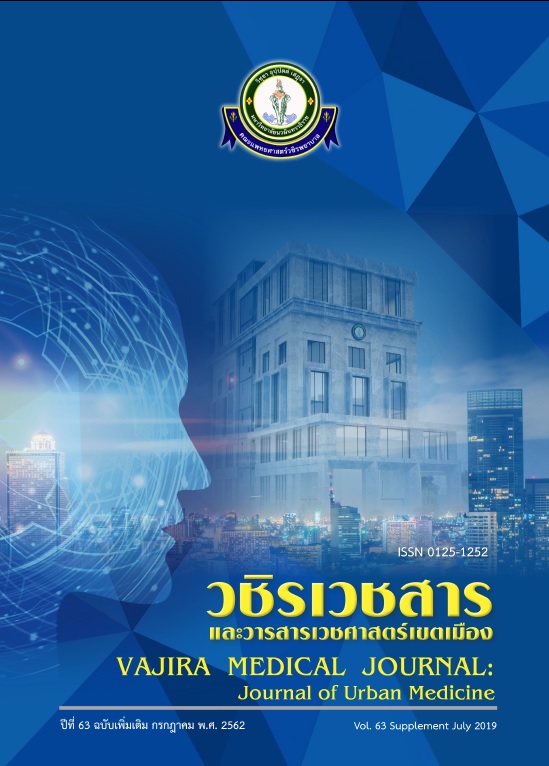Monk’s health in urban area: The Problem that should be considered
Main Article Content
Abstract
The Buddhist monk as one of Triple Gem (Rattana Tri) elements plays an important role in the inheritance and propagation of Buddhism in sustainable and wide manner. Thus, the health care of monks is one of ways to maintain Buddhism. Throughout the time, health problems of monks in Thailand has been discovered. Particularly, monks in urban areas have same lifestyle to urban people that need for fast and convenient lifestyle. In addition, making food offerings from the people may not be appropriate and sufficient for monks’ health. These problems result from public lack of knowledge or misunderstandings. For these reasons, increasing number of monks tend to develop non-communicable diseases each year. More importantly, possible causes are malnutrition and poor food consumption behavior, insufficient physical activity because of certain disciplinary restrictions, insufficient rest and sleep, incomprehensive accessibility to health service, and social environment of urbanity. These factors influence health of urban monks. However, some agencies in both public and private sectors as well as various organizations have implemented the health promotion for monks as a group of population with the difficulties in accessing to the healthcare and the actions to provide correct knowledge and understandings about health of monks in all sectors for better health among monks in urban area. Therefore, all sectors in Thai society should participate, emphasize and take actions to promote health of monks appropriately as one of ways to sustainably inherit Buddhism.
Downloads
Article Details
References
2. Health Bureau. Screening of the health of monks in Bangkok in 2013. Bangkok: Health Bureau; 2014.
3. Department of medical services Ministry of public health. Statistics of the Buddhist monk who received treatment services in 2016. Bangkok: Priest hospital; 2016.
4. Damapong S, Suksuwan L, Ratanachuk S. Background and obesity problems. Nonthaburi: Queen Sirikit National Institute of Child Health. Ministry of Public Health; 2008.
5. Alvin CP. Diabetes mellitus aetiological classification. New York: McGraw Hill; 2005.
6. Lim ES, Ko YK, Ban KO. Prevalence and risk factors of metabolic syndrome in the Korean population-Korean National Health Insurance Corporation Survey 2008. JAN 2012; 69: 1549-61.
7. Angthawanich J, Sangthian A. Thai remote distant media of disease: integrated nutrition to the Buddhist way 4 sectors. Bangkok: Chor Langa; 2015.
8. Chawarat P. Factors affecting health behaviors of monks in Mueang District Phayao Province [dissertation]. Mount Pleasant (MI):Boromarajonani College of Nursing; 2010.
9. Sutsuk U. Health in the Holy Scriptures. Integration into health life. Nonthaburi: Thepprathan Printing; 2011.
10. Lapthananon P. Ecclesiastical health year 2012. Bangkok: Charan Sanitwong Printing Co. Ltd;2013: 124-39.
11. Lapthananon P. Ecclesiastical Health Year 2012. Bangkok: Charan Sanitwong Printing Co. Ltd; 2013: 105.
12. Wirunudomphon D. Religious food research. Journal of Metrology Info; 2010. 12 (55): 24-7.
13. Secretariat of the Sangha Association. Resolution of the Sangha Association No. 20/2545. Available at: http://www.mahabunhome.com/mati324-2545.html. Retrieved May 23, 2019.
14. Wat Chanasongkhram Ratchaworamahawiharn. Statement about education. Bangkok: Prayunsan Thai Printing Limited Partnership; 2008.
15. The Board of the Council of State. Ministry of Public Health Announcement, Person who does not have to pay the service fee for the year 2012. Available at: http://www.ratchakitcha.soc.go.th/DATA/PDF/2555/E/134/43.PDF. RetrievedMay 23 2019.
16. Phoomsawat W. The course is dedicated to educating the clergy network health. Bangkok:Sinkawee Printing Company Limited; 2012.
17. Department of Health, Ministry of Public Health. Department of Health collaborates with the Parties to develop a health promotion measure network with 5 principles and offering a shield of 126 outstanding health promotion measures. Available at: http://www.anamai.moph.go.th/mobile_detail.php?cid=76&nid==6555.Retrieved May 12, 2017.


